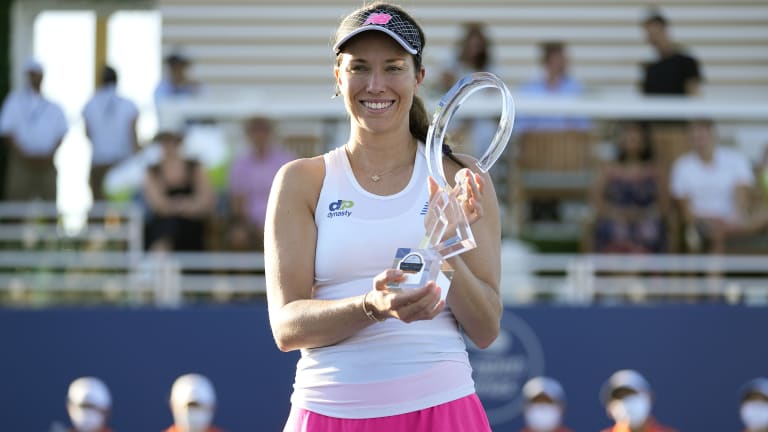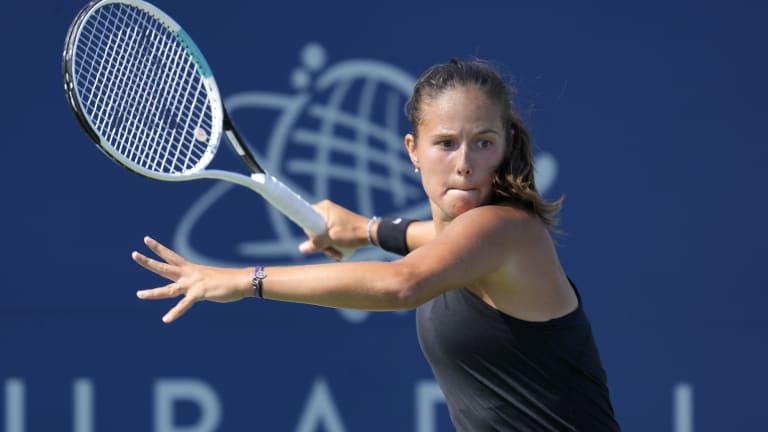WTA San Jose, USA
Danielle Collins triumphs over Kasatkina in San Jose final, win streak up to 10
By Aug 09, 2021WTA San Jose, USA
Weekend Winners: Daniil Medvedev, Daria Kasatkina and Nick Kyrgios take home trophies from Los Cabos, San Jose and Washington, D.C.
By Aug 08, 2022WTA San Jose, USA
Daria Kasatkina roars into second straight San Jose final; American Shelby Rogers awaits
By Aug 07, 2022WTA San Jose, USA
Paula Badosa defeats Coco Gauff in San Jose quarterfinals; Shelby Rogers tops Amanda Anisimova
By Aug 06, 2022WTA San Jose, USA
More than a win: Coco Gauff inspired by "thanks for being you" audience backing her and Naomi Osaka
By Aug 05, 2022WTA San Jose, USA
Coco Gauff holds off late fightback to defeat Naomi Osaka and reach quarterfinals in San Jose
By Aug 05, 2022WTA San Jose, USA
Naomi Osaka, Coco Gauff set up blockbuster second-round clash in San Jose
By Aug 03, 2022WTA San Jose, USA
Elena Rybakina falls to Daria Kasatkina in WTA return after admitting the difficulty in starting up again
By Aug 02, 2022WTA San Jose, USA
Week In Preview: Daniil Medvedev, Naomi Osaka return to hard-court action
By Aug 01, 2022WTA San Jose, USA
The renaissance of tactically eclectic Daria Kasatkina continues to be a pleasing 2021 narrative
By Aug 08, 2021Danielle Collins triumphs over Kasatkina in San Jose final, win streak up to 10
After seeing five championship points slip away in the second set, the American quickly regrouped to prevail, 6-3, 6-7 (10), 6-1, on Sunday at the Mubadala Silicon Valley Classic.
Published Aug 09, 2021
Advertising
Advertising

Collins was ranked No. 49 on July 12, but returns to No. 28 on Monday.
© Getty Images
Advertising

Kasatkina was aiming to clinch her second 500-level title of the year (St. Petersburg).
© Getty Images